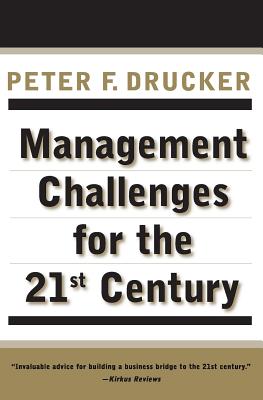Peter Drucker, arguably the foremost management theorist in the world, identifies and explores the critical management issues of the next century in his first major book since Post-Capitalist Society. With a sweeping command of the social, economic, and demographic changes already at work, Drucker argues that we are in a period of profound transition, one that will radically alter management for organizations of all types. Management Challenges for the 21st Century provides an incisive overview of this changing management landscape.
Drucker shows how such inexorable global changes as the collapsing birthrate of developed countries, dramatic shifts in disposable income, and the increasing tension between economic globalization and political splintering will fundamentally alter the environment in which organizations'not only businesses, but also non-profits, universities, and even governmental agencies'seek to survive and thrive. "These environmental changes will require managers not only to develop new strategies and methods," Drucker explains, "but even to rethink basic assumptions about the nature and goals of management itself."
Our current understanding of management, he notes, is governed by a set of assumptions that will no longer be tenable in the 21st century. We must learn to recognize these assumptions in order to see their limitations and replace them with new ideas. We must learn, among other lessons, that "management" is not the same as "business management," but rather is a function of any and all organizations; that there is no single, correct organizational structure or way to manage people, but rather a variety of models and options to be adopted as appropriate; that the scope of management is defined neither legally nor politically, but operationally; and that management's domain is not limited to within the organization, but extends beyond it, enabling the organization to produce results outside of itself.











